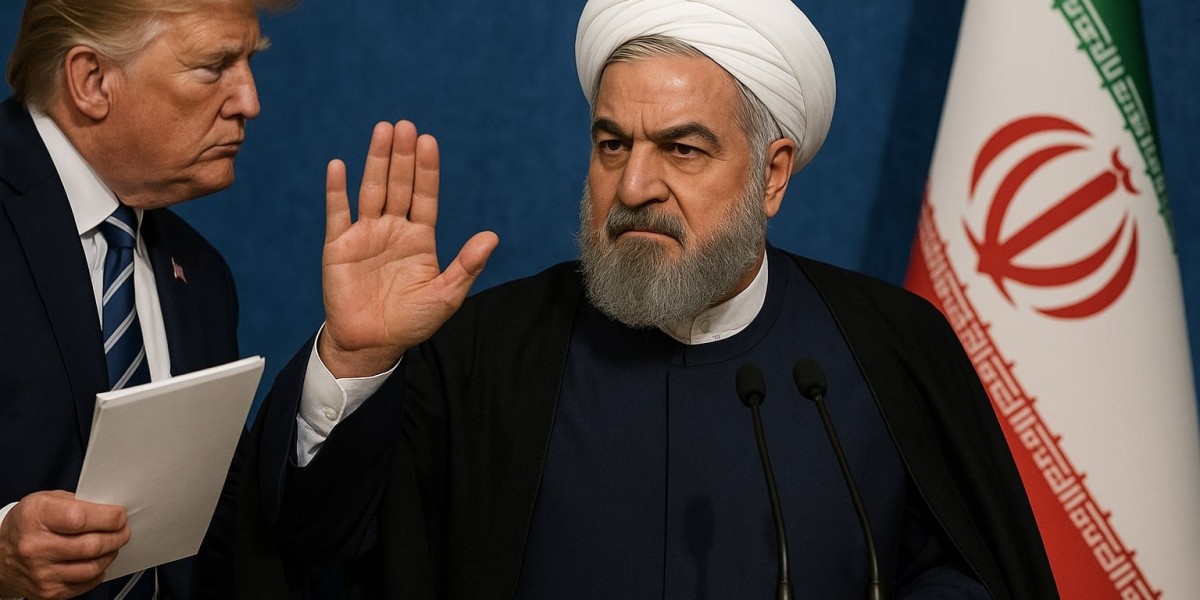Tensions between the United States and Iran are once again heating up as Iran openly pushes back against foreign influence—especially the lingering effects of the Trump administration’s Middle East approach. The Iran–U.S. conflict has a long and complicated past, but Iran’s continued rejection of past U.S. strategies is bringing that history into focus again.
In this article, we take a closer look at why Iran disapproves of Trump-era Middle East policies, what it means for future diplomacy, and how the international community is reacting.
Why Iran Opposes Trump’s Middle East Vision
During his presidency, Donald Trump made some bold moves in the Middle East—many of which directly impacted Iran. Among them were:
The withdrawal from the Iran nuclear deal
Reimposing some of the toughest economic sanctions in modern history
Forming closer ties with Iran’s regional rivals like Israel and Saudi Arabia
To Iranian leaders, these weren’t just political strategies—they were direct threats. Iranian officials called Trump’s actions “aggressive,” “unlawful,” and “damaging to regional peace.” They argued that instead of promoting diplomacy, the policies deepened mistrust and increased instability.
The Abraham Accords: A Shift in Power?
One of the Trump administration’s most publicized moves was the creation of the Abraham Accords, which aimed to normalize relations between Israel and several Arab nations, including the UAE and Bahrain.
While the Accords were celebrated by many in the West, Iran saw them differently.
Iranian officials labeled the agreements a “betrayal” of the Palestinian cause.
They feared the Accords would isolate Iran by creating a U.S.-backed alliance against it.
The move fueled stronger rhetoric and increased support for Iran-backed groups in the region.
This stark contrast in perspectives further strained the already fragile Israel–Iran tensions, creating a more divided Middle East.
The Maximum Pressure Campaign
Trump’s “maximum pressure” policy aimed to force Iran back to the negotiating table by crippling its economy. After exiting the 2015 nuclear agreement, also known as the Joint Comprehensive Plan of Action (JCPOA), the U.S. reimposed wide-ranging sanctions.
These sanctions had severe effects:
Iranian oil exports plummeted.
The local currency lost value dramatically.
Access to basic goods like medicine became more limited.
Inflation made daily life harder for ordinary Iranians.
From Iran’s viewpoint, this wasn’t a negotiation tactic—it was economic warfare. Iranian leaders rejected this approach, saying it punished citizens more than it influenced political decision-making.
The Global Response
It wasn’t just Iran that criticized Trump’s Middle East strategy. Many U.S. allies, particularly in Europe, also voiced their concerns.
Germany, France, and the UK urged the U.S. to return to the nuclear deal.
Human rights organizations warned about the humanitarian toll of sanctions.
Middle Eastern nations like Qatar and Turkey called for more balanced diplomacy.
On the other hand, countries like Saudi Arabia and the UAE supported the tough stance. They viewed it as necessary to counter Iran’s growing influence.
The global reaction to Iran–U.S. relations became deeply polarized—some saw the Trump doctrine as a way to contain Iran, while others believed it increased the risk of conflict.
Iran's Message: We Want Dialogue, Not Pressure
Despite the hostility, Iranian leaders have repeatedly said they’re open to dialogue—but not under pressure. They believe that diplomacy should come from mutual respect, not force.
Here’s what Iran says it wants:
An end to unilateral sanctions
A return to international agreements like the JCPOA
Dialogue that includes all regional players—not just U.S. allies
This approach, according to Iran, is the only path to real and lasting peace in the region.
Will Biden’s Administration Change Course?
President Joe Biden has expressed interest in re-engaging with Iran, but progress has been slow. Many challenges remain, especially with mistrust at an all-time high.
Still, there is cautious optimism that a new approach can bring results. Experts argue that future Middle East peace talks must include broader perspectives—including Iran’s—if they hope to succeed.
What Lies Ahead?
Iran’s rejection of Trump’s strategies is more than a political stance—it’s a call for a different kind of international relationship. The region is at a crossroads, and the decisions made in the next few years could shape its future for decades.
The future of U.S.–Iran relations will likely depend on:
Whether both sides are willing to compromise
How regional powers choose to respond
The ability of world leaders to rebuild trust
Final Thoughts
Iran’s opposition to Trump’s Middle East policies reflects a broader demand for autonomy, respect, and fairness in global politics. Whether it’s the Iran nuclear tensions, the Abraham Accords, or the U.S. foreign policy in the Middle East, every step taken impacts not just governments—but the lives of millions across the region.
As the world watches and waits, one thing is clear: real peace will only come when all voices—including Iran’s—are heard at the table.







